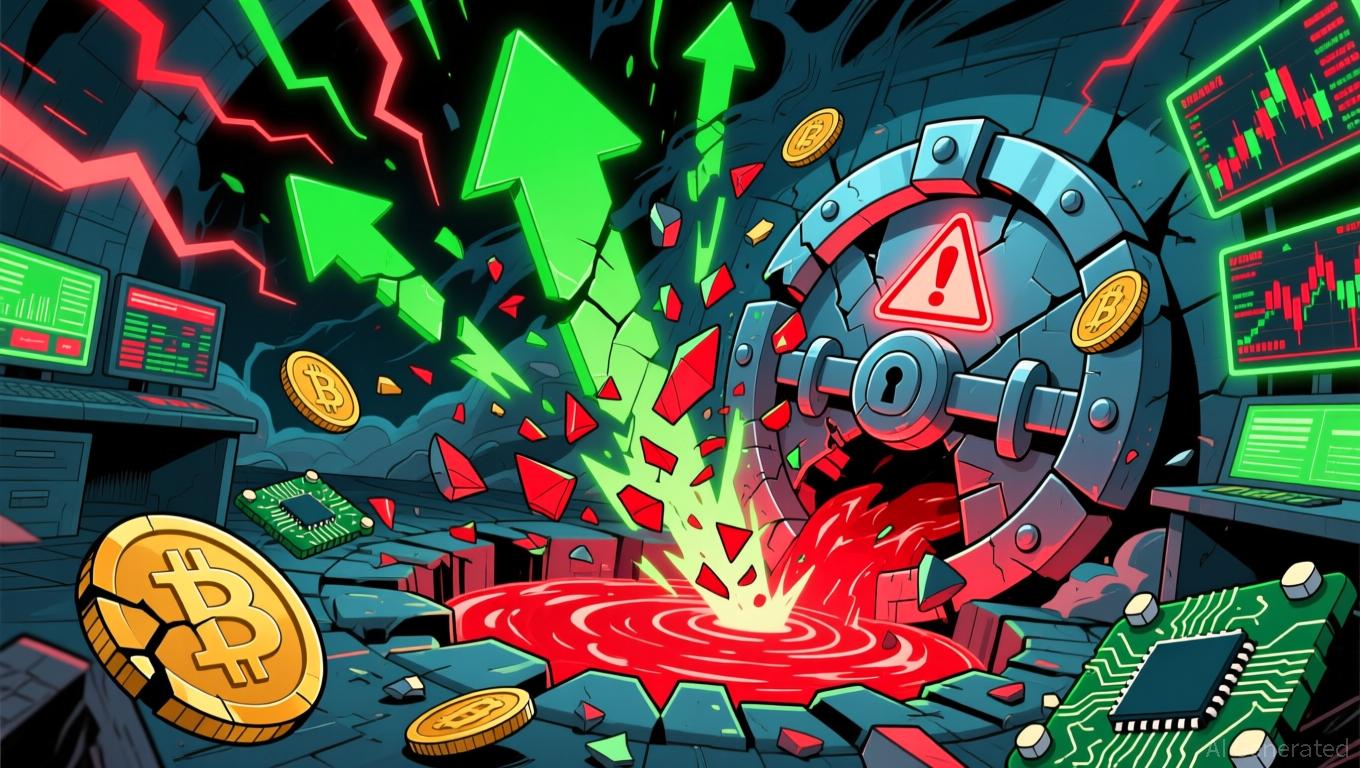Hyperliquid News Today: Hyperliquid's $4.9 Million Loss Highlights DeFi's Ongoing Challenges with Risk Management
- Hyperliquid paused its Arbitrum bridge after a $4.9M loss from a POPCAT meme coin price manipulation scheme, as reported by Coinotag. - A trader used $3M in stablecoins to artificially inflate POPCAT's price, triggering liquidations and exposing DeFi's risks in volatile assets. - The incident mirrors a 2025 JELLYJELLY manipulation case, with experts criticizing Hyperliquid's immaturity in balancing decentralization and risk controls. - Analysts urge stronger safeguards for community-funded pools, as plat
Hyperliquid, a decentralized platform for perpetual futures trading, temporarily suspended its
On-chain investigators revealed that a user—known as MLMabc on X—used $3 million in stablecoins to establish a $20 million long position on POPCAT across 19 different wallets. The trader placed significant buy orders at $0.21 per coin to artificially boost demand, forming a "buy wall." Once this wall was suddenly withdrawn, POPCAT's price plummeted, leading to the rapid liquidation of the $20–30 million position. Hyperliquid's liquidity provider (HLP) had to assume the position to meet its obligations, which led to the substantial loss, as detailed in a

This situation is reminiscent of an event in March 2025, when a trader manipulated the
POPCAT, which has a market value of $136 million, had increased by 5.6% in the 24 hours before the incident but was still down 91% over the past year, according to
Hyperliquid has not issued a public statement detailing the exact cause of the loss but did confirm that the vault was impacted by liquidations. The exchange's status page showed no ongoing problems as of late Wednesday, as
This episode highlights the broader challenges within DeFi, where liquidity pools managed by the community are exposed to unique risks. As platforms broaden their offerings to include more speculative assets, industry experts recommend stricter position limits and improved oversight to reduce vulnerabilities. For now, Hyperliquid's quick move to isolate the compromised bridge reflects standard procedures for containing potential systemic threats, according to blockchain security analysts, as
---
Disclaimer: The content of this article solely reflects the author's opinion and does not represent the platform in any capacity. This article is not intended to serve as a reference for making investment decisions.
You may also like
Ethereum Updates: Shodai Network Secures $2.5M in Seed Funding to Address Crypto’s Capital Challenges
- Shodai Network raised $2.5M in seed funding led by ConsenSys to address crypto's "toxic capital" misalignment issues. - The platform aims to align incentives between developers and investors through open-source tools and community-driven structures. - Backed by Ethereum co-founder Joseph Lubin, Shodai faces regulatory risks but gains credibility through ConsenSys' technical expertise. - This initiative reflects growing institutional demand for sustainable crypto fundraising solutions amid intensified reg

Ark Invest Turns to Circle Amid Growing Regulatory Certainty in Stablecoin Industry
- Ark Invest boosts Circle stake by 353,300 shares, signaling confidence in stablecoin growth amid market volatility and regulatory clarity. - Circle reports $740M Q3 revenue (66% YoY) and $73.7B USDC circulation, but faces margin pressures and a $482M net loss despite strong cash flow. - Ark shifts focus from Tesla to Circle and Alibaba , selling $30. 3M in Tesla shares amid China sales concerns and AI-driven tech bets. - Regulatory progress like the U.S. GENIUS Act and Circle's strategic partnerships (e.
EigenZero’s Reward-Based Approach to Overcoming Cross-Chain Trust Issues
- EigenCloud and LayerZero launch EigenZero, a decentralized cross-chain validation network using economic incentives and cryptographic constraints. - The "optimistic verification" model slashes staked ZRO tokens for malicious activity, aligning validator interests with network security. - By combining LayerZero's interoperability with EigenCloud's staking infrastructure, EigenZero reduces reliance on centralized bridges while maintaining trustless validation. - The solution enables scalable, cost-effectiv
Japan Strengthens Cryptocurrency Regulations and Tests Stablecoins to Foster Innovation While Ensuring Investor Confidence
- Japan's FSA and JPX are strengthening crypto regulations to prevent risks from hoarding and insecure management, balancing innovation with investor protection. - The FSA's proposed pre-approval system for crypto providers aims to address vulnerabilities exposed by the $312M DMM Bitcoin hack linked to Tokyo firm Ginco. - JPX plans to restrict listed companies from accumulating digital assets, following global trends as Japan hosts 14 listed Bitcoin buyers—the most in Asia. - Parallel stablecoin pilots wit